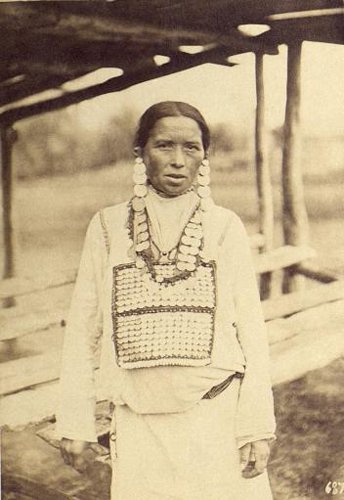|
Sabantuy
Sabantuy is a Tatar, Idel-Uralian, Bashkir and Kazakh ('Sabantoy') summer festival, that dates back to the Volga Bulgarian epoch. At first Sabantuy was a festival of farmers in rural areas, but it later became a national holiday and now is widely celebrated in the cities. In 2012, Kazan Sabantuy was celebrated on June 23. Nomenclature Tatar-speakers call the holiday ''Sabantuy'' (Сабантуй, ), or, more correctly, Saban tuyı (Сабан туе, ) - plural form: ''Sabantuylar'' . Other Turkic peoples living along the Volga also celebrate the holiday. Bashkir-speakers call it Habantuy (Һабантуй), Chuvash-speakers — Akatuy (Акатуй). The holiday's name means "plough's feast" in Turkic languages. The synonym "plough's holiday", or Saban bäyräme (Сабан бәйрәме ) also occurs. History Sabantuy traces its origins to the pre-Islamic epoch, when it was celebrated before the sowing season. The presence of Sabantuy was noticed by ibn Fadlan a ... [...More Info...] [...Related Items...] OR: [Wikipedia] [Google] [Baidu] |
Köräş
Köräş (also kuresh, koresh, küreş, güreş and similar variants) refers to a number of folk wrestling styles practiced in Central Asia. Köräş wrestlers (Turkish:Güreş, ''köräşçelär''; , ''küreščiler'') use towels to hold their opponents, and their goal is to throw their opponents off the feet. The wrestling is the main competition at the folk festival Sabantuy. The sport is called ' in Azerbaijani, ' in Bashkir, ' in Chuvash, ' in Kazakh, ' in Kyrgyz, ' in Shor, ' in Tatar, ' in Turkish, ' in Turkmen, and ' in Uzbek, all derived from Old Turkic ''küreş''. History The first official All-USSR koresh championship took place in Kazan in 1928 and was followed by the first TASSR (Tatar Autonomous Soviet Socialist Republic) national championship in 1949. Since 1956, regular Tatar Köräş competitions have been organized in honor of the national hero and poet Musa Cälil. At the turn of 1950 and 1960, the Soviet ''Federation of freestyle wrestling, ... [...More Info...] [...Related Items...] OR: [Wikipedia] [Google] [Baidu] |
Tatars
Tatars ( )Tatar in the Collins English Dictionary are a group of Turkic peoples across Eastern Europe and Northern Asia who bear the name "Tatar (term), Tatar". Initially, the ethnonym ''Tatar'' possibly referred to the Tatar confederation. That confederation was eventually incorporated into the Mongol Empire when Genghis Khan unified the various steppe tribes. Historically, the term ''Tatars'' (or ''Tartars'') was Endonym and exonym, applied to anyone originating from the vast North Asia, Northern and Central Asian landmass then known as Tartary, a term which was also conflated with the Mongol Empire itself. More recently, however, the term has come to refer more narrowly to related ethnic groups who refer to themselves as ''Tatars'' or who speak languages that are commonly referr ... [...More Info...] [...Related Items...] OR: [Wikipedia] [Google] [Baidu] |
Festival
A festival is an event celebrated by a community and centering on some characteristic aspect or aspects of that community and its religion or cultures. It is often marked as a local or national holiday, Melā, mela, or Muslim holidays, eid. A festival constitutes typical cases of glocalization, as well as the high culture-low culture interrelationship. Next to religion and folklore, a significant origin is agriculture, agricultural. Food is such a vital resource that many festivals are associated with harvest time. Religious commemoration and thanksgiving for good harvests are blended in events that take place in autumn, such as Halloween in the northern hemisphere and Easter in the southern. Festivals often serve to fulfill specific communal purposes, especially in regard to commemoration or thanking to the gods, goddesses or saints: they are called patronal festivals. They may also provide entertainment, which was particularly important to local communities before the adven ... [...More Info...] [...Related Items...] OR: [Wikipedia] [Google] [Baidu] |
Masterpieces Of The Oral And Intangible Heritage Of Humanity
The Proclamation of Masterpieces of the Oral and Intangible Heritage of Humanity was made by the Director-General of UNESCO starting in 2001 to raise awareness of intangible cultural heritage—such traditions, rituals, dance, and knowledge—and urge the protection of the communities that create them. Several manifestations of intangible heritage around the world were awarded the status of ''Masterpieces;'' further proclamations occurred biennially. The status exists to recognize the value of non-material culture, as well as to commit states to promote and safeguard the Masterpieces. In 2008, the 90 declared Masterpieces were incorporated into the new Representative List of the Intangible Cultural Heritage of Humanity as its first entries. Background UNESCO defines oral and intangible heritage as "the totality of tradition-based creations of a cultural community expressed by a group or individuals and recognized as reflecting the expectations of a community in so far as they refl ... [...More Info...] [...Related Items...] OR: [Wikipedia] [Google] [Baidu] |
Soviet Union
The Union of Soviet Socialist Republics. (USSR), commonly known as the Soviet Union, was a List of former transcontinental countries#Since 1700, transcontinental country that spanned much of Eurasia from 1922 until Dissolution of the Soviet Union, it dissolved in 1991. During its existence, it was the list of countries and dependencies by area, largest country by area, extending across Time in Russia, eleven time zones and sharing Geography of the Soviet Union#Borders and neighbors, borders with twelve countries, and the List of countries and dependencies by population, third-most populous country. An overall successor to the Russian Empire, it was nominally organized as a federal union of Republics of the Soviet Union, national republics, the largest and most populous of which was the Russian SFSR. In practice, Government of the Soviet Union, its government and Economy of the Soviet Union, economy were Soviet-type economic planning, highly centralized. As a one-party state go ... [...More Info...] [...Related Items...] OR: [Wikipedia] [Google] [Baidu] |
Village
A village is a human settlement or community, larger than a hamlet but smaller than a town with a population typically ranging from a few hundred to a few thousand. Although villages are often located in rural areas, the term urban village is also applied to certain urban neighborhoods. Villages are normally permanent, with fixed dwellings; however, transient villages can occur. Further, the dwellings of a village are fairly close to one another, not scattered broadly over the landscape, as a dispersed settlement. In the past, villages were a usual form of community for societies that practice subsistence agriculture and also for some non-agricultural societies. In Great Britain, a hamlet earned the right to be called a village when it built a church.-4; we might wonder whether there's a point at which it's appropriate to talk of the beginnings of French, that is, when it wa ... ''village'', from Latin ''villāticus'', ultimately from Latin ''villa'' (English ''vi ... [...More Info...] [...Related Items...] OR: [Wikipedia] [Google] [Baidu] |
Secular Holiday
A holiday is a day or other period of time set aside for festivals or recreation. ''Public holidays'' are set by public authorities and vary by state or region. Religious holidays are set by religious organisations for their members and are often also observed as public holidays in religious majority countries. Some religious holidays, such as Christmas, have become secularised by part or all of those who observe them. In addition to secularisation, many holidays have become commercialised due to the growth of industry. Holidays can be thematic, celebrating or commemorating particular groups, events, or ideas, or non-thematic, days of rest that do not have any particular meaning. In Commonwealth English, the term can refer to any period of rest from work, such as vacations or school holidays. In American English, "the holidays" typically refers to the period from Thanksgiving to New Year's (late November to January 1), which contains many important holidays in American culture. ... [...More Info...] [...Related Items...] OR: [Wikipedia] [Google] [Baidu] |
Chuvash People
The Chuvash people (, ; , ) also called Chuvash Tatars, are a Turkic ethnic group, a branch of the Oğurs, inhabiting an area stretching from the Idel-Ural region to Siberia. Most of them live in the Russian republic of Chuvashia and the surrounding area, although Chuvash communities may be found throughout Russia as well as in Central Asia. They speak Chuvash, a Turkic language that diverged from other languages in the family more than a millennium ago. Among the Chuvash believers, the majority are Eastern Orthodox Christians although a minority follow Vattisen Yaly or Sunni Islam. Etymology There is no universally accepted etymology of the word ''Chuvash'', but there are two theories. One theory suggests that the word ''Chuvash'' may be derived from Common Turkic ''jăvaş'' ('friendly', 'peaceful'), as opposed to ''şarmăs'' ('warlike'). Another theory is that the word is derived from the '' Tabghach,'' an early medieval Xianbei clan and founders of the Northern ... [...More Info...] [...Related Items...] OR: [Wikipedia] [Google] [Baidu] |
Christianity
Christianity is an Abrahamic monotheistic religion, which states that Jesus in Christianity, Jesus is the Son of God (Christianity), Son of God and Resurrection of Jesus, rose from the dead after his Crucifixion of Jesus, crucifixion, whose coming as the Messiah#Christianity, messiah (Christ (title), Christ) was Old Testament messianic prophecies quoted in the New Testament, prophesied in the Old Testament and chronicled in the New Testament. It is the Major religious groups, world's largest and most widespread religion with over 2.3 billion followers, comprising around 28.8% of the world population. Its adherents, known as Christians, are estimated to make up a majority of the population in Christianity by country, 157 countries and territories. Christianity remains Christian culture, culturally diverse in its Western Christianity, Western and Eastern Christianity, Eastern branches, and doctrinally diverse concerning Justification (theology), justification and the natur ... [...More Info...] [...Related Items...] OR: [Wikipedia] [Google] [Baidu] |
Song
A song is a musical composition performed by the human voice. The voice often carries the melody (a series of distinct and fixed pitches) using patterns of sound and silence. Songs have a structure, such as the common ABA form, and are usually made of sections that are repeated or performed with variation later. A song without instruments is said to be a cappella. Written words created specifically for music, or for which music is specifically created, are called lyrics. If a pre-existing poem is set to composed music in the classical tradition, it is called an art song. Songs that are sung on repeated pitches without distinct contours and patterns that rise and fall are called chants. Songs composed in a simple style that are learned informally by ear are often referred to as folk songs. Songs composed for the mass market, designed to be sung by professional singers who sell their recordings or live shows, are called popular songs. These songs, which have broad appe ... [...More Info...] [...Related Items...] OR: [Wikipedia] [Google] [Baidu] |
Ibn Fadlan
Ahmad ibn Fadlan ibn al-Abbas al-Baghdadi () or simply known as Ibn Fadlan, was a 10th-century traveler from Baghdad, Abbasid Caliphate, famous for his account of his travels as a member of an embassy of the Abbasid caliph al-Muqtadir to the king of the Volga Bulgaria, Volga Bulgars, known as his '':wikt:رسالة#Arabic, risāla'' ("account" or "journal"). His account is most notable for providing a detailed description of the Varangians, Volga Vikings, including eyewitness accounts of life as part of a trade caravan and witnessing a ship burial. He also notably described the lifestyle of the Oghuz Turks while the Khazars, Cumans, and Pechenegs were still around. Ibn Fadlan's detailed writings have been cited by numerous historians. They have also inspired entertainment works, including Michael Crichton's novel ''Eaters of the Dead'' and its film adaptation ''The 13th Warrior''. Biography Background Ahmad ibn Fadlan was described as an Arabs, Arab in contemporaneous sources. ... [...More Info...] [...Related Items...] OR: [Wikipedia] [Google] [Baidu] |






